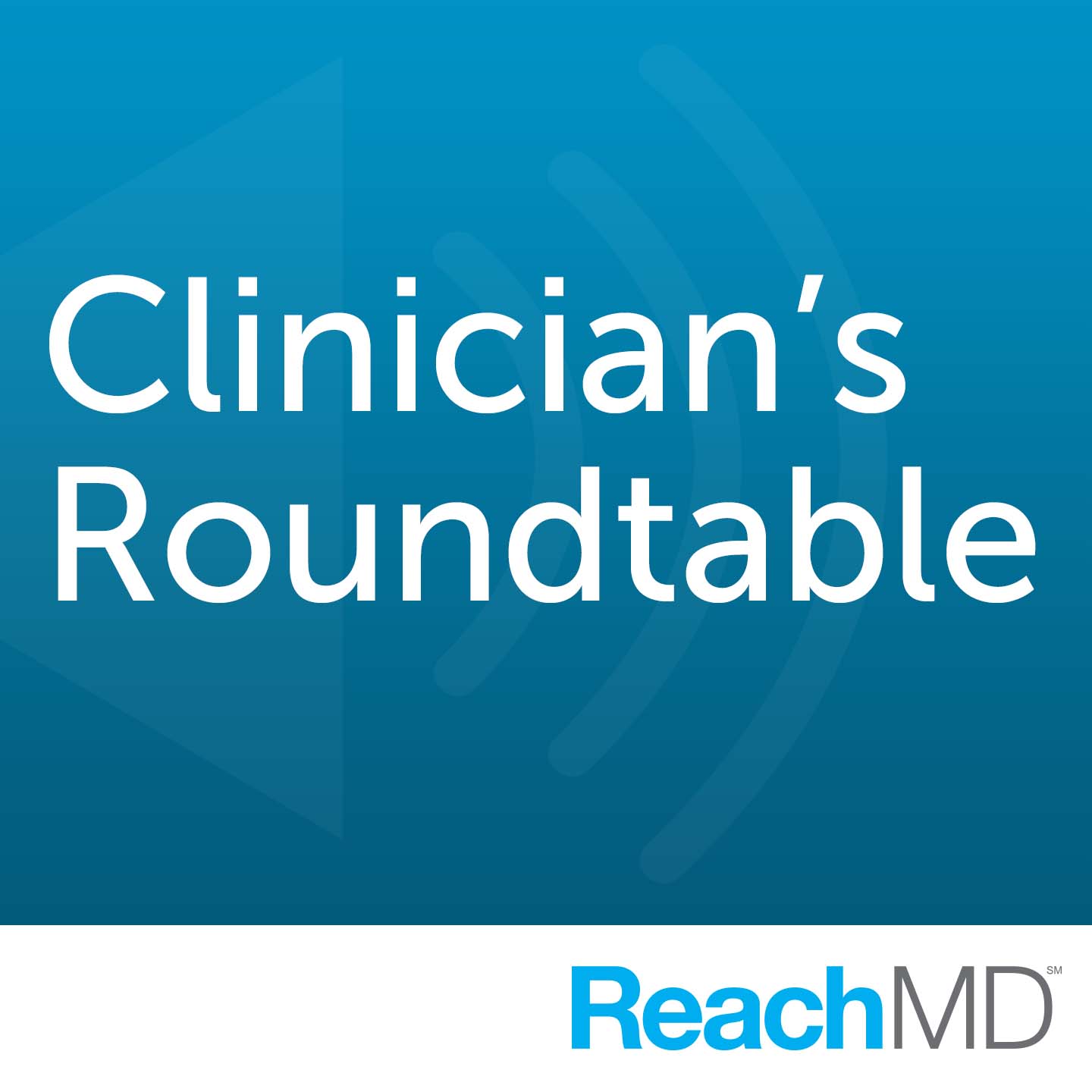

Clinician's Roundtable
ReachMD
Tune in to interviews with the top thought leaders in medicine exploring the clinical and professional issues that are foremost in the minds of the medical community. Join us at the Clinician's Roundtable for discussions on a vast range of topics that every medical professional should know about.
Episodes
Mentioned books

Jan 20, 2025 • 4min
Looking Back to Look Forward: Key Dermatology Updates in 2024
Host: Raj Chovatiya, MD, PhD
In light of the Maui Derm 2025 conference, Dr. Raj Chovatiya is here to discuss the most significant updates in the dermatology field that helped define 2024. Dr. Chovatiya is a Clinical Associate Professor at the Rosalind Franklin University Chicago Medical School and Founder and Director of the Center for Medical Dermatology and Immunology Research in Chicago.

Jan 20, 2025 • 3min
Updates in Undifferentiated Eczema: Taking a Practical Approach to Care
Host: Raj Chovatiya, MD, PhD
How should we approach caring for undifferentiated eczema patients who didn’t have eczema as a child, who doesn’t have atopic co-morbidities, and isn’t flexural? Here to give a quick overview of his session at the Maui Derm 2025 conference that sought to help answer this question is Dr. Raj Chovatiya. Dr. Chovatiya is a Clinical Associate Professor at the Rosalind Franklin University Chicago Medical School and Founder and Director of the Center for Medical Dermatology and Immunology Research in Chicago.

Jan 20, 2025 • 4min
Maui Derm 2025: Key Themes and Topics to Know
Host: Raj Chovatiya, MD, PhD
Here to share his insights on the key themes and topics covered at the Maui Derm 2025 conference is Dr. Raj Chovatiya. Dr. Chovatiya is a Clinical Associate Professor at the Rosalind Franklin University Chicago Medical School and Founder and Director of the Center for Medical Dermatology and Immunology Research in Chicago.

Jan 8, 2025 • 6min
APOL1 and Chronic Kidney Disease: New Findings in African Populations
Guest: Rasheed A. Gbadegesin, MD, MBBS
A new study by the H3 Africa Kidney Research Network found that APOL1 variants are a major risk factor for chronic kidney disease. Additionally, these variants are particularly prevalent among West Africans. Dr. Rasheed Gbadegesin dives into these findings and explains how they could contribute to preventive measures and improved outcomes in patients of African ancestry. Dr. Gbadegesin is the Director of the Office of Physician-Scientist Development at Duke University School of Medicine.

Dec 6, 2024 • 3min
IgAN Explained: Key Differences from Other Kidney Conditions
Guest: Mohamed Ibrahim, MB, BCh
IgA nephropathy (IgAN) is a rare autoimmune kidney disease in which IgA deposits damage kidney filters, causing symptoms like proteinuria and swelling. While symptoms can overlap with other kidney diseases, IgAN presents challenges of its own. Learn about the unique characteristics of IgAN with Dr. Mohamed Ibrahim, an Assistant Professor of Transplant Nephrology at the University of Maryland School of Medicine.

Nov 19, 2024 • 12min
Nutritional Strategies for Managing IgA Nephropathy
Guest: Jennifer Moore, MS, RDN, CSR, LDN
Host: Charles Turck, PharmD, BCPS, BCCCP
IgA nephropathy, or IgAN, is a rare kidney disease that requires dietary changes to maintain kidney health and function while supporting other organ systems. Learn about the most crucial dietary considerations for these patients from Jennifer Moore, a renal nutrition expert.

Nov 1, 2024 • 11min
Rare Kidney Disease: A Parent and Caregiver’s Perspective
Host: Gates B. Colbert, MD
Guest: Kelly Helm
Over 35 million people in the United States suffer from some form of chronic kidney disease, but many of them lack the support and education to navigate their condition and receive the best possible care. After her daughter was diagnosed with a rare kidney disease, Kelly Helm discovered the many obstacles associated with management and treatment. Hear from Kelly as she sits down with Dr. Gates Colbert to share what she’s learned as a parent, caregiver, and advocate. Kelly is the Executive Director of Patient Engagement at NephCure, a nonprofit organization dedicated to supporting and empowering patients with rare kidney diseases.

Aug 2, 2024 • 10min
Psoriasis Healthcare Barriers: Uncovering Underrepresented Patient Populations
Host: Charles Turck, PharmD, BCPS, BCCCP
Guest: Amy McMichael, MD
A recent study that looked at psoriasis in patients from different races and backgrounds found that there weren’t a significant number of differences in the factors studied between patients with skin of color and Caucasian patients. The one thing that was really quite impactful for patients who are Black is that they wanted to see more physicians who could speak to their cultural and ethnic backgrounds. So to learn more about the findings and how we can address these barriers, join Dr. Charles Turck as he dives in with Dr. Amy McMichael, Professor in the Department of Dermatology at Wake Forest School of Medicine in Winston-Salem, North Carolina.

Jun 13, 2024 • 4min
Beyond the Surface: The Impact of Psoriasis on Cardiovascular Health
Guest: John Barbieri, MD, MBA, FAAD
Patients with psoriasis die about five years younger than those without the condition, and cardiovascular disease is the leading cause of this premature mortality. Tune in to hear Dr. John Barbieri discuss strategies to identify risk factors and improve cardiovascular disease prevention in patients with psoriasis. Dr. Barbieri is an Assistant Professor of Dermatology at Brigham and Women's Hospital at Harvard Medical School in Boston.

Apr 23, 2024 • 6min
Insights on the Rising Rates of Syphilis in the United States
Guest: Ina Park, MD
The United States has seen its largest increase in syphilis cases in the past five years. And with increases prevalent in every region, along with a shortage of medication, additional surveillance strategies and importation resources are necessary. Dive in for a discussion on the challenges and strategies to combat the spread of syphilis with Dr. Ina Park, Professor of Family Community Medicine at the University of California San Francisco School of Medicine.


